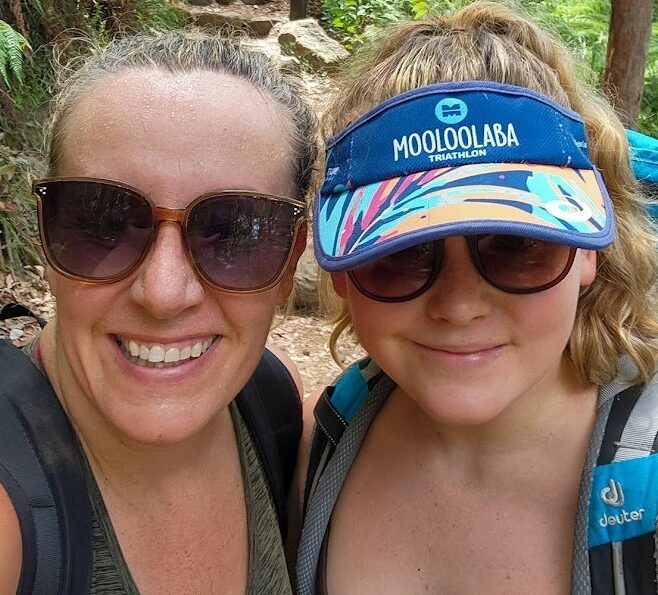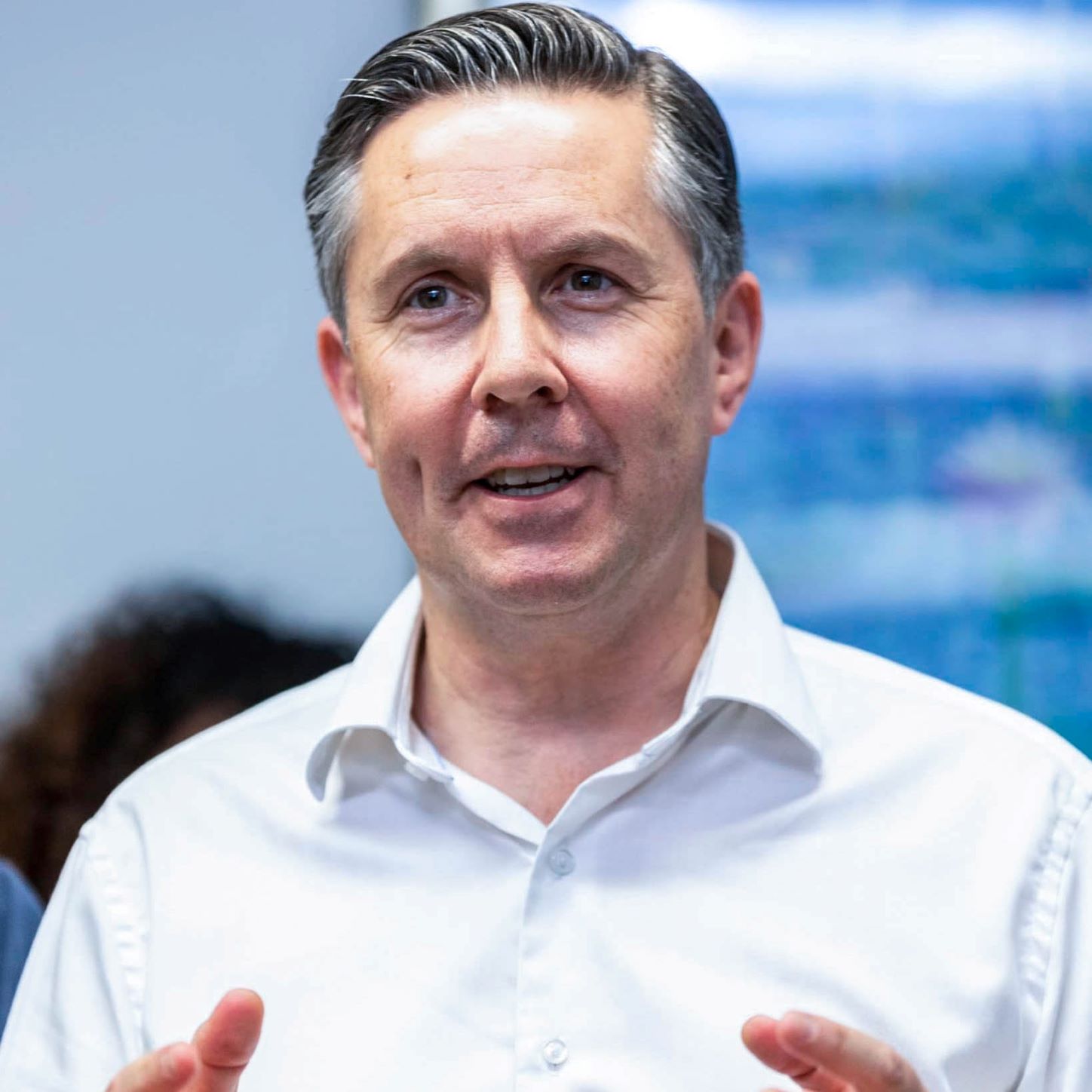The government’s intervention to extend the affordability of a life-changing diabetes medicine has been slammed as a “short-term fix”.
Fiasp is the ultra-fast-acting insulin that Jackie Goldston’s daughter Freya relies on to treat her type 1 diabetes. Ms Goldston says the temporary intervention is not good enough.
The Sunshine Coast 14-year-old is among about 15,000 Australians who use the insulin, but the drug was scheduled to be taken off the Pharmaceutical Benefits Scheme from April 1.
Its removal would have sent the prescription price soaring from $7 a month to $280 a month, with the news angering many in the “diabetes world”.
Related story: ‘Life-changing’ insulin to be removed from PBS
Freya began taking Fiasp about a year ago, when it was approved for people under 18. The insulin has had an “incredible and significant impact” on her life.

“We’ve seen a huge difference since she’s been taking it,” Ms Goldston said.
“Emotionally she’s happier, because when your blood glucose levels are higher you feel sick and tired.
“Also, when you are low, you feel like you are going to pass out and your brain is actually being damaged. To reduce the risk to both of those things is really important to everybody in the long term.”
She said the difference for the young athlete being able to take Fiasp opposed to her original insulin, Novorapid, was that she could be “more normal”.
“She has more time in the classroom, more time with friends and more time for swimming training,” Ms Goldston said.
After the news of the drug’s removal from the PBS, close to 40,000 people signed an online petition created by Belinda Moore, titled “save Fiasp from falling off the PBS”.
Earlier this month, the drug’s manufacturer Novo Nordisk said that offering the drug on the PBS was no longer commercially viable, because of federal government price cuts.
At the time, the Minister for Health and Aged Care Mark Butler acknowledged the concern raised by many affected families and advocacy groups and said the department was working with the drug’s manufacturer for a solution.
Earlier this week, the government announced it had secured access to Fiasp and Fiasp FlexTouch on the PBS for the next six months.
A Department of Health and Aged Care spokesperson said that under the government’s ‘Supply Only’ arrangements, from April 1 patients with a prescription can refill their current scripts and repeat scripts at a pharmacy over the next six months.
“If you have previously used Fiasp and do not have a current prescription please go to your doctor before April 1 to ensure you are able to access Fiasp through the Supply Only period, or to discuss longer-term treatment alternatives,” the spokesperson said.
Mr Butler said “the decision by Novo Nordisk to withdraw Fiasp from the PBS has been deeply disappointing and distressing for Australians living with type 1 diabetes and their families”.

“Labor has a proud record of supporting Australians living with diabetes, including establishing the Insulin Pump Program in 2008 and last year giving all 130,000 Australians with type 1 diabetes access to subsidised CGM (continuous glucose monitoring) products under the National Diabetes Services Scheme,” he said.
“The government will continue to act in the best interests of Australians living with type 1 diabetes … and will continue to work with diabetes advocacy groups and industry to ensure Australians living with type 1 diabetes will have access to fast acting insulin beyond the Supply Only period.”
But Ms Goldston said the intervention wasn’t the long-term solution they needed and it was extremely disheartening.
“It’s definitely a reprieve and that’s wonderful news, but it’s really difficult because what do we do next?” she said.
“The uncertainly is not a good feeling.
“Initially we weren’t aware it was only for six months and we were so excited. We thought it was all fixed, so it’s frustrating.
“The short notice with having to have a script by the end of this month is not good. The pressure on health professionals to produce multiple scripts now is going to be high.”
She said the family was now trying to get as many scripts as they could.
“That’s what everyone is doing, because we don’t know what supply is going to be like,” she said.
“The attitude that upset all of us in diabetes world initially was they said there was alternatives. But they are not as good, they are asking us to go back to an insulin from last century.”
Federal Member for Fairfax Ted O’Brien called on the government to reverse its decision to “rip away” funding for Fiasp entirely, not just temporarily.

“Only after the Coalition swung in to support impacted families did the Labor Minister for Health reluctantly provide a short-term fix,” Mr O’Brien said.
“This is simply not good enough.
“I will continue this campaign for a permanent solution beyond October on behalf of Freya and the 15,000 other Australians who rely on Fiasp.”
Ms Goldston agreed with Mr O’Brien’s views. She said the fact there was no initial government consultation for families before the drug’s removal “was shocking” and she hoped that would change this time around.
“Everyone was blindsided by that and Minister Butler even said he was blindsided by the PBS’s decision too,” she said.
“The more pressure we can put on to keep an ultra-fast-acting drug available the better for Freya and so many sufferers. Availability of the best insulin isn’t just important to children it’s important to adults as well.”
Diabetes Australia Group CEO Justine Cain thanked Mr Butler for his intervention to preserve access to the insulin for around 15,000 Australians living with diabetes.
“Living with diabetes can be difficult and people should be able to access the best available insulins and medicines to live,” Ms Cain said.
“Minister Butler has demonstrated that the Albanese Government understands how important it is to give people living with diabetes the tools and support they need to manage the condition.
“He listened when Diabetes Australia outlined how Novo Nordisk’s disappointing decision to delist from Fiasp from the PBS would impact people and he acted to help people living with diabetes.
“We hope that over the next six months the Department of Health and Novo Nordisk continue discussions and reach an agreement that benefits people living with diabetes.”
SUBSCRIBE here now for our FREE news feed, direct to your inbox daily.





